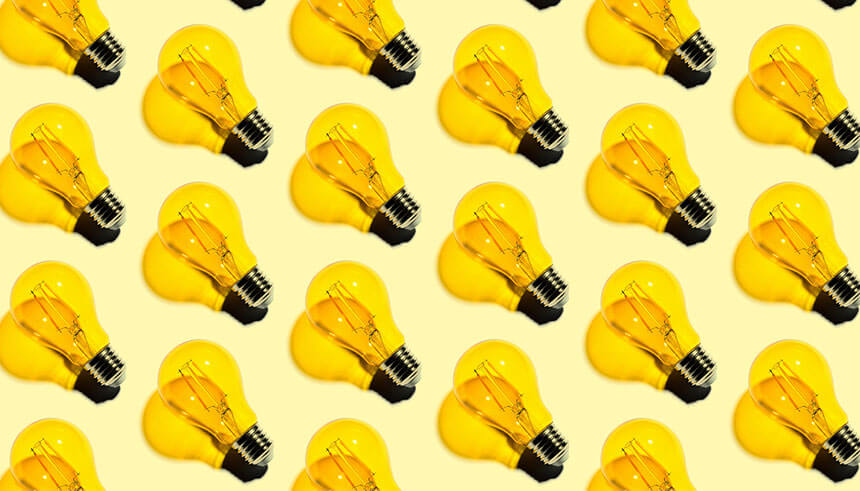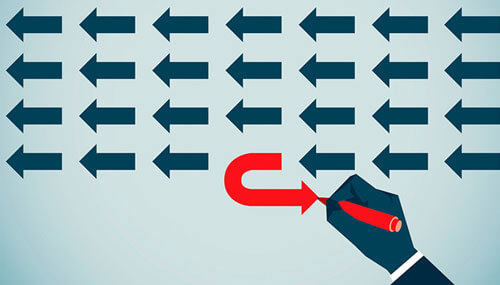Entrepreneur Insight
Coming Up with Creative Entrepreneurial Solutions During the Pandemic
By Daisy Lin

Two entrepreneurs meet each other for the first time to discuss COVID-19 strategy and survival.
Entrepreneurs are dealing with unprecedented challenges during the pandemic. A Small Business Majority survey finds that without additional funding, more than a quarter of small business owners will not survive past the next three months. In the middle of the chaos, though, some entrepreneurs are finding ways to be creative, to pivot, to streamline and to survive.
Reach Further brought together two such business owners to meet each other and discuss what they’re facing, and share tips and strategy.
Shallom Berkman founded Urth Caffé with his wife Jilla in 1991, serving heirloom shade-grown certified organic coffee, fine tea, health-conscious meals and baked goods. Now, Urth Caffé has nine locations in Southern California, as well as locations in Las Vegas, Japan, Saudi Arabia and Dubai.
Hailey Kwon founded the first Dots Cupcakes in 2006, without capital and without even knowing how to bake. A few years later, she expanded to a second location. And then in 2018, she opened up Dots Cafe, a full-service sit-down restaurant in her own retail complex, which was financed through East West Bank.
Here are excerpts from that conversation, which has been condensed and edited for clarity.
So good to see you, Hailey and Shallom. So, we really just wanted to get two of our all-star entrepreneurs together to talk to each other, to share strategy and to find out how you guys are navigating through this unprecedented world event.
Hailey: It's such an honor to even be speaking to you, Shallom. I think you're a pioneer in the cafe industry. And I think without you starting your business, I actually wouldn't have started my own.
Shallom: Wow, thank you Hailey. That's beautiful. You know, one of the shocking experiences to me is how much pain, fear and stress that our customers bring with them into the stores. I feel like every day it's almost like a battle zone—and this is something very unexpected. We have the people who come in and refuse to wear a mask and get very angry when we try to very politely enforce that. There can be a huge scene. And then, on the other hand, we have the people who are very scared of COVID, they see someone who refuses to put their mask on, and then we start getting hate from that side: “Oh, you don't care, you're not safe. This is terrible, we're calling the health department.”
And it seems like we're caught in between these extremes of fear, anxiety and anger. And not only that, it's become very common for people to make racial accusations. And that's very painful. It's of course not true, but that's a painful reality to deal with. And this is how we deal with it: My wife and I have told our team that during these three months of lockdown, we realized that we have such a desire to socialize, to have human interaction, to get out of the house. Everyone coming in, even with anxiety, has this deep need to be around people. And this is the moment to rise above the fear, the pain, and really do true service, really serve from the heart with kindness and compassion. This is what our community wants and needs. And so, this is a daily coaching, because we have people quitting, we have people also stressing out and screaming, and we have all kinds of crazy things going on.
You say communicating with compassion and kindness—is that something that you're reinforcing with your staff? Because they're scared, too, I'm sure.
Shallom: Yes, absolutely. How we're communicating it is in a five-minute meeting before each shift every single day. We're also communicating it in a weekly management meeting with managers only. And we also wrote a memo, but I would say it's more inspiring than a memo. [It’s] just this whole philosophy, we've documented it, and we sent it to all of our employees to sign and ask for their commitment to do this, but I'm happy to say that it's backed up on a daily basis, as well.
In terms of pivoting, what have you guys had to do?
Hailey: We're in the celebration business. So, all the birthday parties, baby showers—all of that was pretty much canceled. We decided we were going to celebrate the family dinner. Growing up, my parents worked all the time, but what I remember was sitting down and having dinner. So, we really spent all our energy in the first couple of weeks creating dinners. We did different dinners almost every single night for the last four months, and we do a meal where there’s an entrée, some vegetables and a dessert. And we charge each family $40, and it feeds between four to six people.
We have never been in the dinner business before, so even little things like packaging we weren't prepared for. In the beginning, we were going to probably six stores a day, because the distributor would drop off, and then we were short some items for dinner, so we were waiting in lines. And we never passed on the food costs to the consumers because we really wanted to keep that price point at $40. To be honest, there were meals where we didn't make any money. We probably lost a lot of money, but there were meals where we made up for it a little bit. So, we try to think of it as seven days of a balance sheet, as opposed to just one meal. And when the families come in, sometimes they will buy cupcakes or sometimes they will buy drinks. So really that was the biggest turning point for us.

Shallom: Urth Caffé is really a place where people gather, and to-go and delivery had traditionally been a very small part of our business. And my wife, Jilla, she's really a visionary. I will tell you that one week before the lockdown, she said we have to close our stores and do take out and delivery online. I said, “What? No, we're not going to do that until it's mandated. Why do we have to lose business?” She said, “I'm telling you that's what we have to do.” And I said, “Okay, let's do it.” And she was 100% right. A week later, we were prepared, organized and already had days of doing only delivery and takeout. It's helped us learn how to control costs with labor and in every area, just to survive and to stay afloat. I guess when this is all over, we'll have an excellent new style of operation.
Hailey: We've had some employees that have been with me since almost, like, day one. The thought that they’re not going to have money for their families…it didn’t give me an option to close. After you work with so many people so for so long, they become family. I think I felt the pressure to support their families. That has driven me, my husband and my mom to work harder than we have for a long time. We work seven days a week, but it was a little bit more challenging with the pandemic.
Are there things that you're doing to help you stay positive and optimistic, or just to get through?
Shallom: Let me just first say thank you to East West Bank, because you proved to be the best financial partner. I really feel East West Bank has our back and has made it a lot easier to get through this tough situation.
Hailey: During this time, there are so many unknowns, and the bank has been very diligent with emails and calling you back and kind of making you feel secure, and providing PPP loans and other resources.
Shallom: This is a great challenge of our generation, of our time. And it's a very hard thing. But I think about past generations and realize that other generations have had things that must have been like hell, such as World War II or World War I, and just countless catastrophes that our grandparents and other past generations have had to deal with. I really do believe that the world and humankind are evolving; maybe we evolve in painful ways, much like the earth does when a new island is created by a volcano. I'm very confident that this, too, will be an evolution for humanity. And we’ll be admired, hopefully, by the next generation for staying strong, fixing these issues and making them better for our children.
Sign up for the Reach Further Newsletter
We’ll keep you in the know about the latest US-Asia business news and trends.
Suscríbase al boletín Reach Further
Lo mantendremos informado sobre las últimas noticias y tendencias comerciales entre Estados Unidos y China.

